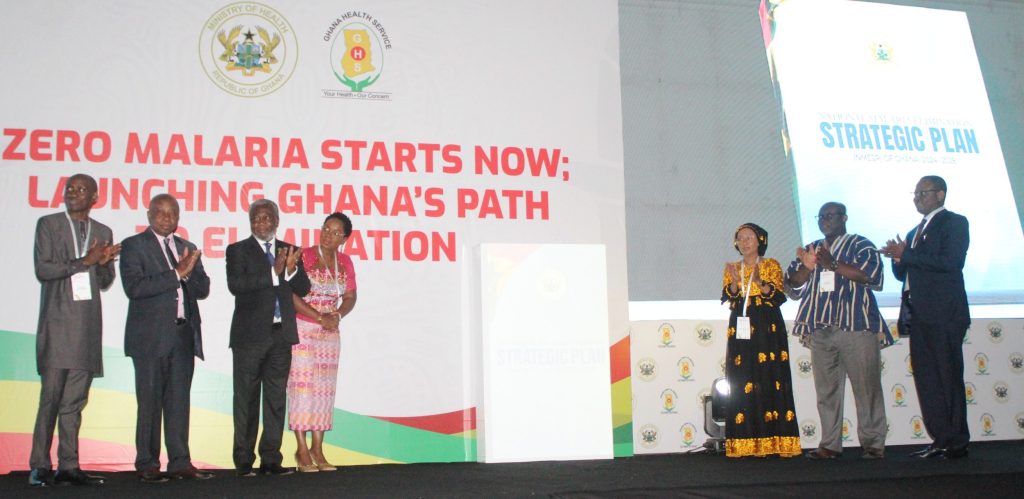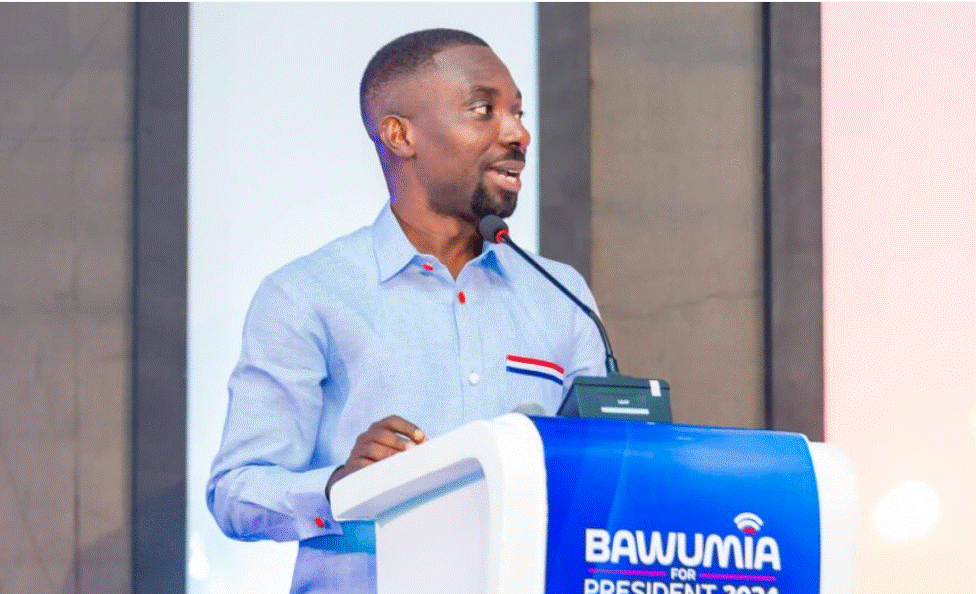
- as BOSAG launches 5-year roadmap to position Ghana as outsourcing hub
- targets 100,000 ‘international-facing’ jobs
By Ebenezer Chike Adjei NJOKU
The nation’s business process outsourcing (BPO) and global business services (GBS) industry is set for a major expansion over the next five years, with the launch of a new strategic plan by the Business Outsourcing Services Association, Ghana (BOSAG).
The initiative, aimed at creating 100,000 sustainable jobs by 2030, projects a fivefold increase in employment and output within the domestic outsourcing sector.
The BOSAG 5-Year Strategic Plan (2025–2030), unveiled at the Accra Digital Centre, outlines a comprehensive framework for scaling the nation’s outsourcing ecosystem through workforce development, investor engagement, and infrastructure enhancement.
The plan also seeks to consolidate Ghana’s status as a leading outsourcing destination in West Africa by aligning national policy with global market trends in digital services, customer experience (CX), and IT outsourcing (ITO).
David Gowu, CEO of BOSAG speaking at the event
BOSAG’s projections indicate that the country’s outsourcing workforce, currently estimated at about 19,600 professionals, including 3,000 serving international clients, could rise to more than 100,000 employees within the timeframe. The association described this as critical to Ghana’s digital transformation agenda and broader economic diversification strategy.
Launching the plan, David Gowu, Chief Executive Officer of BOSAG, said the initiative was designed to translate Ghana’s competitive advantages into measurable outcomes. “Ghana is uniquely positioned to capture a growing share of global outsourcing demand. Our cost competitiveness, youthful English-speaking workforce, and cultural alignment with Western markets provide a strong foundation for expansion,” he said.
Shamima Muslim, Deputy Presidential Spokesperson, who delivered a speech on behalf of the Chief of Staff
The plan, themed ‘Driving Sectoral Growth: BOSAG’s 5-Year Strategic Plan to Create 100,000 Jobs’, focuses on five strategic pillars: workforce readiness, ecosystem collaboration, policy advocacy, investment attraction, and international marketing.
Together, these form what BOSAG calls a ‘national roadmap’ for developing a sustainable digital services economy. According to BOSAG, Ghana’s GBS/BPO sector is already demonstrating strong fundamentals. Customer experience and IT outsourcing dominate the industry, accounting for 94 percent of all activity—with CX operations representing 78 percent and IT outsourcing 16 percent. The remaining six percent is spread across human resources outsourcing, finance and accounting, and knowledge-based services.
Industry data presented at the launch shows that Ghana’s outsourcing providers serve a diversified client base across Europe, North America, and Africa. The UK and Germany lead European demand, while North America accounts for 35 percent of Ghana’s international outsourcing contracts, mainly in retail, fintech, and healthcare support. Intra-African business makes up the remaining 25 percent, with clients in Nigeria, Kenya, and South Africa increasingly turning to Ghana for finance and IT support functions.
This comes as the global GBS market was estimated at around US$1.1 trillion in 2024 and is forecasted to reach almost US$1.5 trillion by the end of 2027 with an annual growth rate 17 percent. Africa is expected to grow at a CAGR of 22 percent in the period from about US$23.8 billion to US$42.6 billion. Ghana is considered an emerging market at US$473 million, compared to mature markets like South Africa (US$6.3 billion) and Egypt (US$5.6 billion).
Kojo Hayford, BOSAG Board Chair speaking at the event
Rolana Rashwan, Steering Committee Member of the African Federation of Global Business Services Associations, described Ghana’s potential as “underrated but highly promising,” noting that the country’s stability, education system, and language advantage positioned it well to attract large-scale outsourcing operations. “The next step is coordinated execution; aligning policy, investment, and skills development to accelerate industry growth,” she said.
Ghana’s demographic and educational strengths include a population of 34.3 million with nearly 28 percent aged between 18 and 34, Ghana possesses a large and youthful labour pool suitable for GBS employment. The country’s universities produce over 105,000 graduates annually, with about 20 percent in STEM-related disciplines. Tertiary Institutions continue to supply a steady stream of technology, business, and engineering talent.
The association identified challenges in developing mid- and senior-level professionals, particularly in DevOps, project management, and cybersecurity, but noted that local providers are beginning to address these gaps through targeted training programmes. BOSAG’s strategy includes partnerships with private training firms, multinationals, and government agencies to enhance technical capacity and leadership development.
From a cost perspective, Ghana remains among the most competitive outsourcing markets globally. Average CX agent salaries stand at around US$190 per month, significantly below South Africa’s US$489 and the US$220–340 range in India and the Philippines. Fully loaded operational costs for customer experience services range between US$610 and US$813 per agent per month, compared to more than US$1,100 in South Africa. IT outsourcing operations average between US$1,021 and US$1,361, roughly 30 percent below comparable Asian markets. Wage inflation remains moderate at five to seven percent annually, ensuring predictable investor margins.
Swearing in of the BOSAG Governing Council
BOSAG’s growth targets depend on continued collaboration among government, industry players, and international partners. Key institutions represented at the launch included Teleperformance, AmaliTech, CCI Global, Concentrix, Remotown, AIDEC Digital, and GIZ’s Invest for Jobs initiative. Government representation at the event, led by Hon. Sam Nartey George, Minister for Communication, Digital Technology and Innovations, the administration’s support for digital sector reforms that encourage investment and job creation.
In a speech read on his behalf by the Director of Digital Technology at the, Dr. Samuel Antwi-Gyekye, the Minister said the government views the global business services sector as an important pillar of the country’s digital transformation agenda, particularly in relation to job creation and skills development. He added the BOSAG 5-year plan aligns with the Ministry’s broader commitment to building a competitive digital economy supported by targeted investments in infrastructure, innovation, and talent development.
He noted that the Ministry’s One Million Coders Programme, which aims to equip young people with digital skills, will complement the outsourcing industry’s employment prospects by increasing the number of job-ready candidates for CX, ITO, and back-office roles. “BOSAG’s strategy complements this beautifully by ensuring these skills translate into real jobs,” he said.
The post Domestic GBS/BPO sector poised for 500% growth by 2030 appeared first on The Business & Financial Times.
Read Full Story




















Facebook
Twitter
Pinterest
Instagram
Google+
YouTube
LinkedIn
RSS